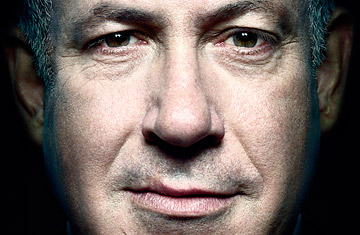
For the past three years, Barack Obama and Benjamin Netanyahu have had a relationship of mutual--and deepening--distrust. At their first meeting, in May 2009, Obama privately asked the Israeli Prime Minister to embrace the creation of a Palestinian state, but Netanyahu refused. A year later, at the height of the greatest U.S.-Israeli tensions in a generation, Obama left Netanyahu negotiating with White House aides in the West Wing while he went to dinner with his family, a move dubbed "the Snub" in the international media after it was leaked. By the time of their encounter in May 2011, Netanyahu was lecturing Obama in front of the cameras and rallying Congress against the President's peace proposals.
So it was clear they were working hard to reconcile when on March 5 they managed to pull off a summit that both sides called sober, professional and--most surprising--successful. That's because at the top of the agenda was a shared high-stakes mission: stopping Iran's nuclear program. For the moment, Bibi and Barack's interests are aligned. In the midst of a presidential campaign, Obama needs to show he's a staunch defender of Israel, while Netanyahu, who may still act unilaterally on Iran, needs to keep America at his side.
But this political symbiosis may not last very long. Even as international economic sanctions have begun to squeeze Iran's economy and its leaders have shown a new interest in compromise, the Islamic Republic has accelerated its uranium-enrichment program and is getting ever closer to being able to produce a bomb, according to the International Atomic Energy Agency (IAEA). An Iranian nuclear arsenal would be an unacceptable threat to regional and global stability, Obama has declared. For Israel, it would be a matter of survival, says Netanyahu.
Iran presents a challenge for the two leaders because they differ over how and when Iran should be stopped. The U.S.'s massive military advantage means it could set back Iran's nuclear program at the last minute, perhaps as much as a year or two from now, when Iran could be in the final stages of producing a nuclear weapon, but for the time being, diplomacy offers a cheaper and potentially more effective long-term solution. For Israel and its much smaller military, the moment when it could attack Iran's program alone and do meaningful damage is about to pass, if it hasn't passed already. Once it does, Israel might have to rely on the U.S. to protect it. That, Netanyahu stated the evening after his March 5 meeting with Obama, is something he would not accept. Reminding his listeners of the U.S.'s refusal to bomb Auschwitz during World War II, he declared at the annual meeting of the American Israel Public Affairs Committee (AIPAC) in Washington, "Never again will the Jewish people be powerless and supplicants for our fate and our very survival."
Despite their history of distrust, Obama and Netanyahu must cooperate if they are to stop Iran from getting a nuclear weapon. Obama must persuade Netanyahu not to attack Iran while American diplomacy and ever tightening sanctions still have a chance to succeed. Netanyahu must decide whether he can rely on Obama to stop Iran from getting a nuclear weapon after Israel no longer can. Neither man is particularly comfortable with the bet he is placing on the other.
